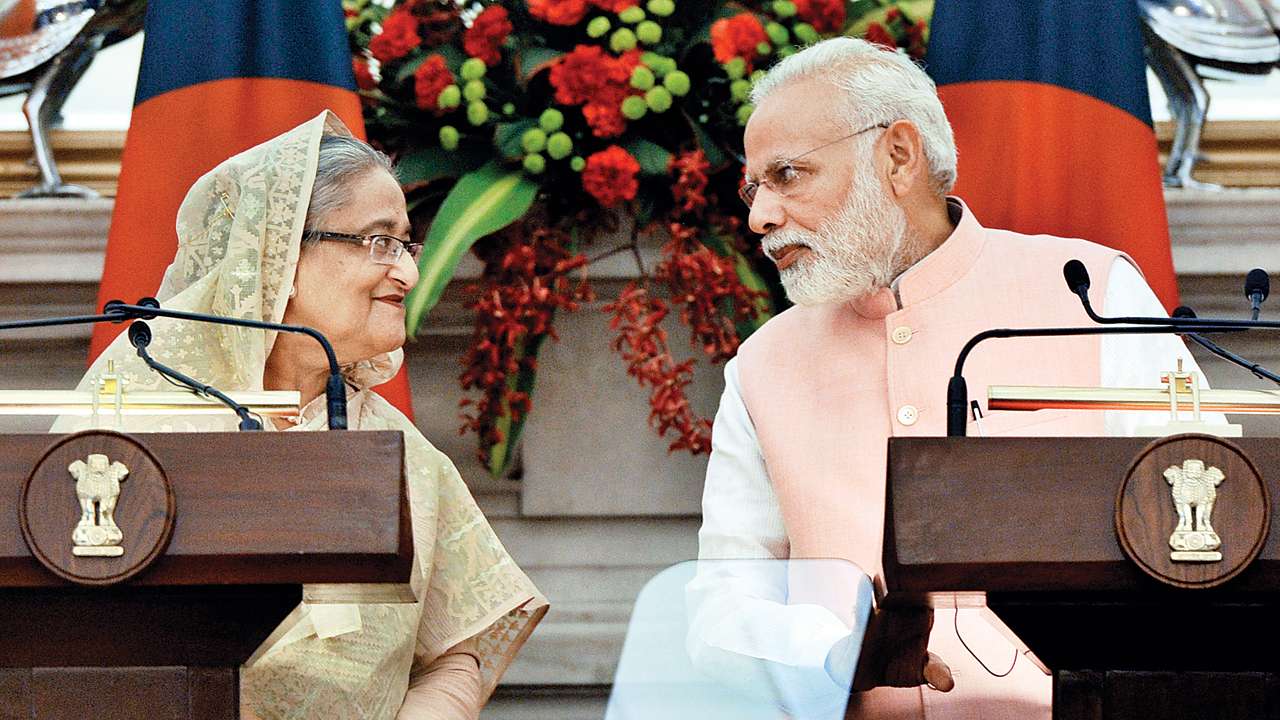
The Election season has descended upon the Indian subcontinent. India’s western neighbour, Pakistan is all set to have another shot at electoral exercise under the jackboots while in the east, Bangladesh will witness polls, possibly in December at a time when the polity is deeply divided. India is scheduled to hold the general elections in the summer of 2019 while Sri Lanka’s Presidential polls may take place any time between mid-and-late-2019. All these elections are crucial to not only the country in which they would be held but also to the overall strategic landscape of the Indian neighbourhood.
From the Indian point of view, the outcome of the electoral exercise in Pakistan is important but not significant because fundamentally, Islamabad’s India policy would continue to be decided by Rawalpindi, the Army’s GHQ, no matter who heads the civilian government. It is not the same however in Dhaka. Democratic process in Bangladesh, despite many flaws, is well-entrenched and people have got used to exercising their franchise every five years even though, of late, there have been accusations against the current Prime Minister Sheikh Hasina and her party, the Awami League of manipulating the system to perpetuate one-party rule in Bangladesh.
That allegation, notwithstanding, Sheikh Hasina would be going into the elections seeking an unprecedented third consecutive term. Her main rival, Begum Khaleda Zia of the Bangladesh Nationalist Party (BNP) is currently in jail on corruption charges but can theoretically fight elections from the prison if her party decides to — unlike in 2013 when the BNP boycotted the polls — join the contest. If that happens, Hasina is likely to face a tougher contest than ever before simply because her decade-long rule has given rise to substantial anti-incumbency despite commendable progress in many sectors.
Developments in Bangladesh would, of course, be watched with great interest in India. India would like to see the return of Sheikh Hasina as Prime Minister since under her Bangladesh has extended unparalleled cooperation in intelligence and security matters by arresting and handing over insurgent leaders from India’s North-east and helping bust terror modules. India has under the Narendra Modi government also delivered on an old promise to settle the land and maritime boundary issues with Bangladesh, considerably strengthening her hands domestically. However, a recalcitrant Mamata Banerjee, chief minister of West Bengal, has put the spanner in the works by refusing to allow signing of the crucial Teesta river water-sharing agreement between New Delhi and Dhaka. However, a high-powered Awami League party delegation, which was in India last month, was conveyed New Delhi’s appreciation for all the cooperation and help that India has received from Sheikh Hasina, and has been assured of help in many bilateral issues in various stages of implementation or planning.
The Awami League delegation held talks with the ruling Bharatiya Janata Party (BJP) office bearers and also called on Prime Minister Narendra Modi during its short trip. Both sides expressed happiness that the bilateral ties have achieved much more impetus than ever before in the last four years and particularly during Hasina’s last trip to India in April 2017 during which a record 36 agreements were signed. The most notable pacts were six agreements in defence cooperation (including the first Framework Agreement on Defence Cooperation and a 500 million US dollars defence-specific line of credit; agreements in the areas of hi-tech cooperation (space, nuclear energy, IT and cybersecurity) and a separate Line of Credit (LoC) worth 4.5 billion US Dollars.
The two sides noted that about 60 joint mechanisms continue to provide an impetus for bilateral cooperation in the areas of security, power, energy, shipping and connectivity. Apart from the projects already under implementation, New Delhi is planning several major initiatives to take the bilateral relationship forward. Some major proposals to be implemented over the next five years include: Connecting North-east India to Chittagong port by rail through the Akhaura-Agartala and Feni-Belonia route; power transmission network connecting North-east and East India through Bangladesh (Kathihar-Parbatipur-Bornagar 765 KV interconnection); establishing East-West rail connectivity from West Bengal to Assam (through Jamuna bridge and Kulaura-Shabazpur point) and West Bengal to Tripura (through Padma bridge and Akhaura-Agartala point) to be financed through the fourth line of credit by India; removing port restrictions on landports; clinching a Comprehensive Economic Partnership Agreement; a free trade regime in goods and services; and inter-connection of LNG grids.
One of the major success stories in India-Bangladesh bilateral relationship — apart from the most obvious one on the security front — has been in the power sector. By mid-2018, the power supply from India is likely to reach 1,200 MW from the current 660 MW. Some of the other proposed energy-related projects include India-Bangladesh Friendship pipeline from Siliguri to Parbatipur in Northern Bangladesh for supply of high-speed diesel from Assam-based Numaligarh refinery for which an MoU is expected to be signed soon and inter-linking of LNG grids of the two countries.
On the political front, too, there’s grudging appreciation in Bangladesh of New Delhi’s stand on the Rohingya issue. Sheikh Hasina’s handling of the issue has been compared by her followers to India’s treatment of refugees from East Pakistan in the run-up to the formation of Bangladesh in 1971. Whether the Rohingya issue dominates the electoral discourse and ultimately helps Sheikh Hasina in the elections is anybody’s guess but, clearly, she starts with an advantage. By December — when the Bangladesh elections would be over — India would have moved into that phase when everything is geared towards the hustings. Interesting months ahead indeed for the sub-continent.
The writer is a strategic affairs analyst, author and founder of BharatShakti.in, a specialised defence website. Views are personal.